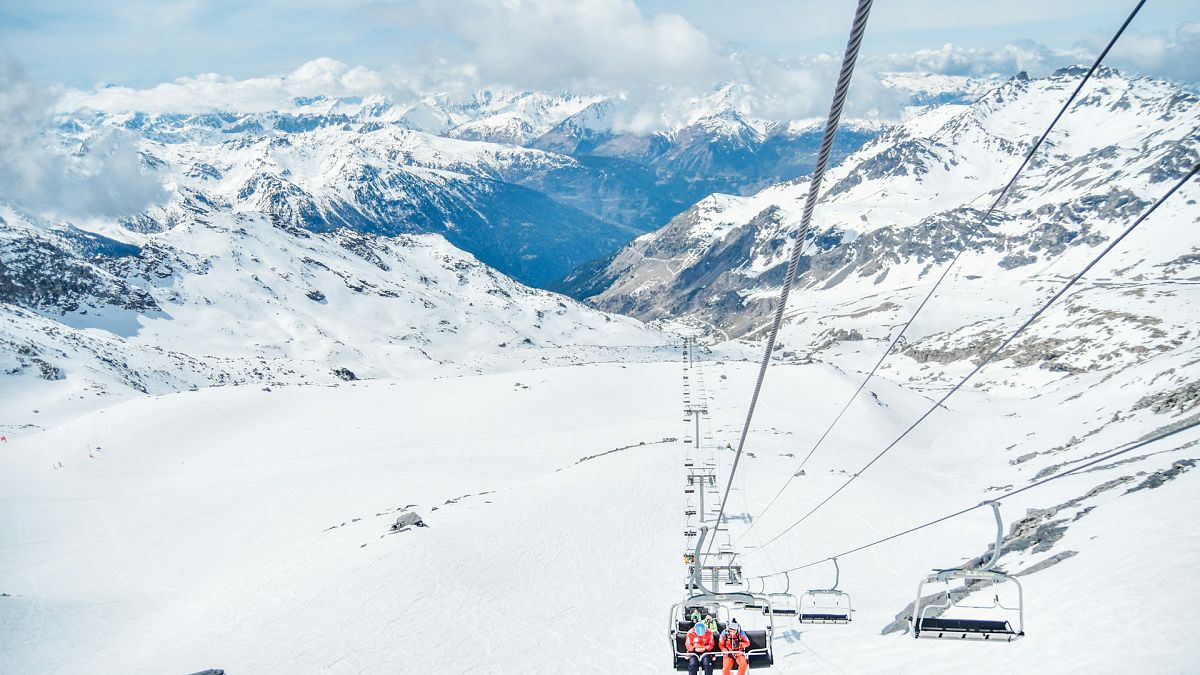Why are ski resorts being forced to close their lifts?

Residents of Grand Puy, France, voted to shutter the ski lift after a lack of snow and visitors made it unviable.
As the weather cools down, many of us will be thinking of a trip to the slopes. However, thanks to the impact of climate change, more ski resorts are being forced to close for good.
In the small Alpine resort of Grand Puy, in Seyne-les-Alpes, France, a ‘télésiège’ – or chairlift – has been ferrying skiers up to an altitude of 1,800m for some 65 years.
Now, due to an increasingly frequent absence of snow and a lack of visitors, locals have voted to shutter the lift and the winter resort as a whole.
Seyne-les-Alpes, with a permanent population of just over 1,305, was making losses of hundreds of thousands of euros every year, according to the town council.
Locals were given the chance to vote on whether or not to keep the resort open and, in the end, 71 per cent chose to bring it to a close.
From 1 November, the lifts will stop running at Grand Puy and the community will instead focus on expanding the development of “activities independent of the ski lifts”.
A lack of snow is causing ski resort closures worldwide
Across Europe and the wider world, climate change is affecting a number of mid- to low-altitude ski resorts. Many now have no choice but to diversify and invest in all-season activities to attract visitors back and improve their economies.
During the ski season earlier in 2023, the popular French resort of Saint-Colomban-des-Villards had to stop its lifts running completely, after a significant lack of snow combined with temperatures climbing up to 13°C. The resort’s average February temperature is, in contrast, just over 4°C.
Grand Puy boasts more than 24 km of slopes, but has seen visitor numbers halve over the last decade.
During the 2013-14 season, officials recorded 17,000 skier days; in the same period from 2023-24, that figure was just 6,000.
“My aim is not to close Grand Puy, but I no longer want the resort to cost the municipality €350,000 a year and prevent us from investing in the town as a whole,” says Laurent Pascal, the mayor of Seyne.
Local reports say that the small town had taken out a loan of €2 million in order to run and maintain the lifts. In the end, the mayor took advice from a consultancy, which came up with seven potential scenarios relating to the future of the resort.
In the end, the preferred choice was full closure.
What is the future of the Grand Puy resort?
Locals were asked if they agreed to a plan to “sell all equipment (chairlifts, drag lifts, snow guns, snow groomers, etc.)” and “diversify activities with a self-financing budget of €150,000 over five years”.
The mayor and councillors say they hope they can recoup some €600,000 from the sale of the assets to expand their touristic offerings.
While some locals were fiercely opposed to the closure, with a number saying the lift could be repurposed for year-round activities, a majority agreed it was for the best.
The mayor insisted that the replacements will consist of “sports and nature activities that respect the environment”.
Although it’s not yet clear exactly what these will be, there have been discussions on, variously, electric-assisted mountain bike trails and the turning of a reservoir into a fishing lake.
What impact is climate change having on ski resorts?
Grand Puy is not the only resort which has decided it must close before the season has even begun.
In the French Alpine resort of Le Grand Serre, officials announced the end of subsidies for ski activities, despite the fact it’s been in operation for some 85 years.
It’s thought that around 200 jobs will be lost, but there was no choice but to call an end to operations, especially given that the local government had injected €2.7 million into the resort over the past seven years, something that is now untenable.
Geographer Pierre-Alexandre Metral discovered that more than 180 ski resorts have closed in France since the 1970s, many of which are small, family-run operations.
Especially in recent years, these shutterings have increasingly been down to climate change.
In 2023, the French resort of La Sambuy also closed after a shortage of snow, with local officials confirming that ski lifts would be dismantled, despite the fact that the resort continued to attract summer visitors.
“Between the 1960s and today, the climate has changed greatly. Now, there is less snow in the winter,” Jacques Dalex, the local mayor, told Europe 1 radio at the time of the announcement. “This year, we opened for only four weeks, that’s it. The season is getting shorter and shorter, and obviously, it is not going to get any better.”
While the majority of the closed resorts are in lower or mid-mountain areas, climate change also poses a severe threat to those at higher altitudes.
At resorts across France, Austria and Bosnia, owners have been forced to make use of artificial snow.
That practice actually causes more climate-related issues, as it uses huge amounts of water and energy every time it’s created.
Related
Brits forced to pay fee to visit these 30 countries…
UK tourists will be required to pay a fee to visit 30 countries in Europe under new European Union (EU) travel rules.The rules mean British holidaymakers will n
The beautiful European island with just 148 locals
Irakleia is a beautiful island in the Minor Cyclades of Greece, nestled in the heart of the Aegean Sea and just an hour away from Naxos. Officially recorded t
Warning issued for Brits flying easyJet and Ryanair to popular…
Passengers flying with Ryanair, easyJet and British Airways should expect disruption (Picture: Urbanandsport/NurPhoto via Getty Images) Passenge










